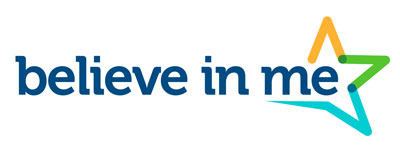In commemorating Martin Luther King, Jr., we celebrate his official holiday and recognize his work to make this world more just and equal. This blog is for everyone who believed in and is still practicing his ideals.
When Martin Luther King, Jr. is mentioned, we first think about his famous “I have a dream” speech during the March on Washington in 1963. However, this blog is an invitation to learn more about the life and the test of one of the greatest activists of the civil rights movement in the US.
Exploring the Early History and Life of Dr. Martin Luther King
Martin Luther King Jr. was born on January 15, 1929, in Atlanta, Georgia. He was the son of Martin Luther King Sr., a pastor, and Alberta Williams King, a former schoolteacher. In addition, he had two siblings, the oldest was Christine, and the youngest was Alfred.
At the age of 15, Martin Luther King Jr. was admitted to Morehouse College and continued his educational journey with a Bachelor’s degree in Divinity from Crozer Theological Seminary in Pennsylvania. He also won a prestigious fellowship and became president of its predominantly white senior class during his tenure there. Martin Luther King’s dedication didn’t end there; driven by ambition, he went on to earn his doctorate at Boston University just two years later. Also, in Boston, he met the woman who would be his future wife, Coretta Scott.
How Nonviolent Protests Impacted the Civil Rights Movement
Now, we are going to drill down on some significant events in the fight for civil rights and equality, starting on the timeline of 1955 when Rosa Parks bravely defied racial segregation laws by refusing to give up her bus seat. Consequently, she was arrested, and a movement of protest swept the nation. The Montgomery Improvement Association was formed, and Martin Luther King Jr was chosen as their leader.
In his first speech to the group, King declared:
“We have no alternative but to protest. For many years we have shown amazing patience. We have sometimes given our white brothers the feeling that we liked the way we were being treated. But we come here tonight to be saved from that patience that makes us patient with anything less than freedom and justice.”
His words captivated people across America – introducing them to an inspiring personality, powerful rhetoric, and fresh voice for change.
In 1959, after just a few words exchanged with supporters of Mahatma Gandhi, Dr. Martin Luther King, Jr. was enthralled by the power and effectiveness of nonviolent resistance as an effective tool in liberating people from oppression. His fateful encounter sparked a lifelong mission to lead oppressed individuals on their path toward justice and freedom through peaceful measures.
Leading the Battle Against Segregation in Search of Equal Human Rights
King’s campaign to end segregation drew nationwide attention when police turned dogs and fire hoses on the demonstrators in Birmingham, Alabama, in the spring of 1963. As a result of this protest, King was jailed along with many of his supporters, including hundreds of schoolchildren. His comments from the Birmingham jail, published as “Letter from Birmingham Jail”, argued that individuals have a moral responsibility to break unjust laws. With protests had the epithets at the top of the national political agenda. Later that year, President John F. Kennedy announced his intention to seek a civil rights bill—an announcement that was a direct result of the Birmingham protests.
Keeping up with the timeline, on August 28th, 1963, all of the efforts that started with the Birmingham protest culminated. An enormous gathering of more than 200,000 people started the unforgettable March on Washington for Jobs and Freedom. You can read more about this gathering at the blog “Bayard Rustin: Helping People Of Color And The Gay Community Through Social Justice.” While standing before Lincoln Memorial’s grand memorial, Dr. Martin Luther King Jr. gave one his most powerful speech –”’I have a Dream” – expressing hope that every American could soon be united as brothers.
Winner of The Nobel Peace Prize and Champion of the Civil Rights Act
In 1964, the U.S. Congress passed the Civil Rights Act, outlawing segregation in public accommodations and prohibiting employment discrimination based on race or color. In December of that same year, Martin Luther King Jr. became the youngest recipient of the Nobel Peace Prize for his work to end racial segregation and racial discrimination through civil disobedience and other nonviolent means. He used the prize money of $54,123 to establish The Martin Luther King Jr. Center for Nonviolent Social Change in Atlanta, Georgia.
In 1965, he spoke out against the Vietnam War at a rally in New York City’s Central Park. That same year, the voting rights act was passed, outlawing discriminatory practices that had prevented blacks from exercising their right to vote in many states.
Living Legacy Beyond Human Rights
On April 4th, 1968, Martin Luther King Jr. was assassinated on the balcony of a Memphis hotel by James Earl Ray. Following his death, riots broke out in more than 100 cities throughout the United States. His legacy lives on today as he is remembered for his courage, sacrifice, and commitment to justice.
Martin Luther King Jr.’s message of peace and understanding should be celebrated by everyone regardless of race or religion. He will always be an American hero and a symbol of hope. Let us never forget his dream of peace, justice, and equality for all.
How Martin Luther King Jr Has Influenced the Children of Today
In a world where war is still a medium of confrontation, it is important for us to highlight, recognize and remember the teaching of Dr. King in non-violent resistance, such as protests, grassroots organizing, and civil disobedience, to achieve seemingly-impossible goals. He went on to lead similar campaigns against poverty and international conflict, always maintaining fidelity to his principles that men and women everywhere, regardless of color or creed, are equal members of the human family.
Martin Luther King Jr.’s legacy lives on in today’s youth, and the work of organizations like Believe in Me is essential to bring education and opportunity to our children of color. Eliminating marginalization and fighting for the rights of these children will ensure that Martin Luther King Jr.’s work lives on in our society today. As a collective society, we must recognize Martin Luther King Jr.’s work and strive to further his legacy by fighting for social justice with respect and dignity. Martin Luther King’s mission of peace, justice, and hope continue to inspire us all.
Opportunities for You to Celebrate Martin Luther King, Jr. Day
Last but not least, we want to invite you to celebrate this day. For that, we have a list of activities for you to celebrate the important work of Martin Luther King, Jr.:
- Search MLKDay.gov. Spearheaded by AmeriCorps, the site allows you to search MLK Day virtual and in-person volunteer opportunities in your community and explore numerous other resources.
- Stock your bookshelves with books about Martin Luther King Jr.
- Take a virtual tour of the National Civil Rights Museum.
- Write a letter or send a card to deployed service members through Soldiers’ Angels.
- Always be kind to others!
Remembering a Leader Who Brought Peace
In conclusion, Martin Luther King Jr’s legacy has profoundly impacted the youth of today, inspiring generations to strive for a more just and equitable world. Martin Luther King Jr.’s work exemplifies how we can fight for justice with non-violence. His work will continue to live on in organizations like Believe in Me, which actively work towards eliminating inequality and bringing opportunity to our children of color. Martin Luther King Jr. Day is an important day for us to pause and reflect on the legacy he has left behind and the work we can do going forward to ensure that his message lives on in our society today.
We hope you will join us this Martin Luther King Jr Day in celebrating Martin Luther King Jr.’s life and legacy, remembering always to be kind to others.







